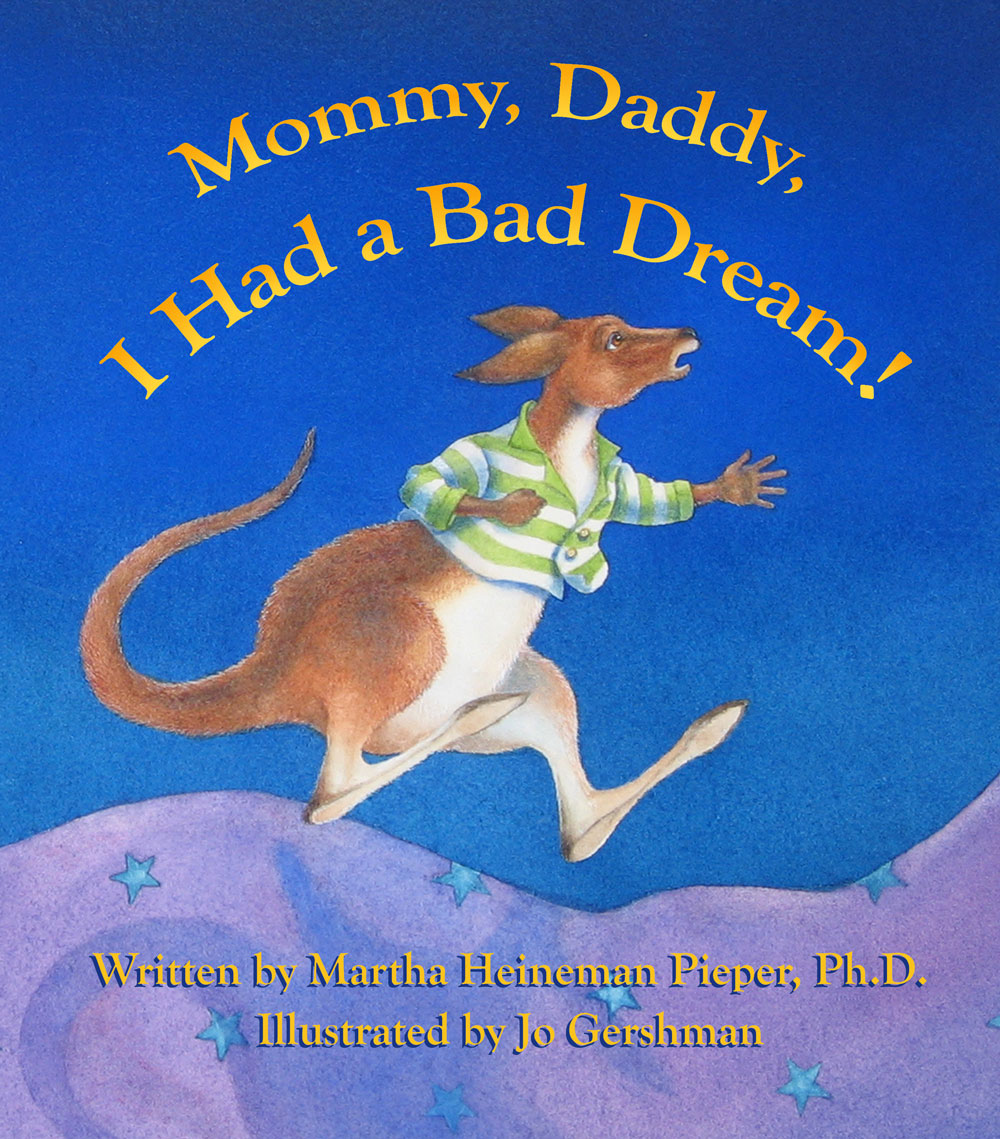


 Mommy, Daddy, I Had a Bad Dream! by Martha Heineman Pieper, Ph.D. makes it possible for both children and parents to respond constructively and effectively to children's bad dreams. When Joey, a bouncy kangaroo, has a series of bad dreams, his parents lovingly help him to understand them.
Mommy, Daddy, I Had a Bad Dream! by Martha Heineman Pieper, Ph.D. makes it possible for both children and parents to respond constructively and effectively to children's bad dreams. When Joey, a bouncy kangaroo, has a series of bad dreams, his parents lovingly help him to understand them. 

 Mommy, Daddy, I Had a Bad Dream! puts children's bad dreams to rest!
Mommy, Daddy, I Had a Bad Dream! puts children's bad dreams to rest!